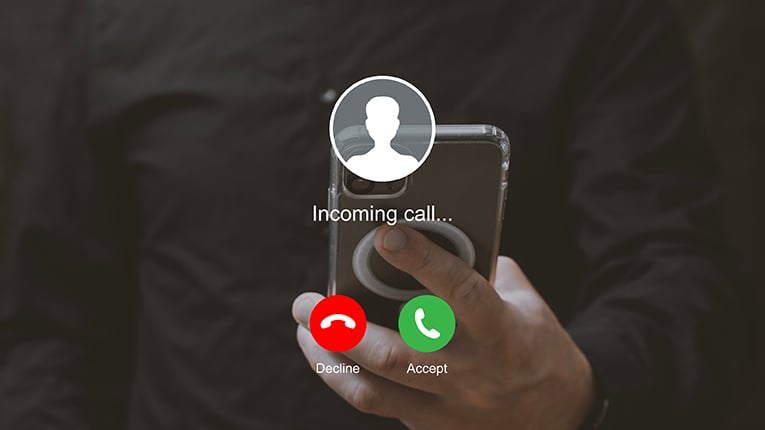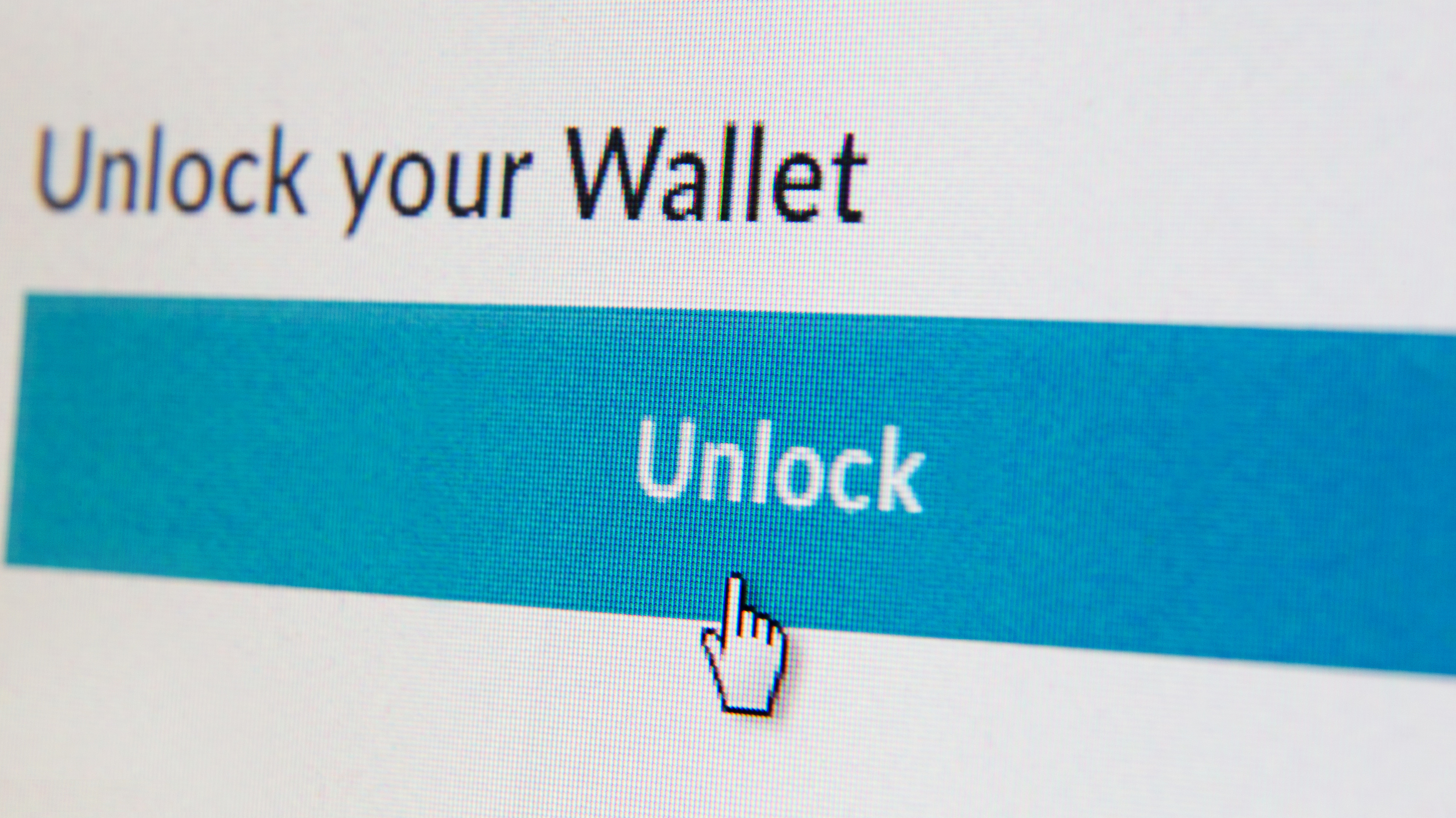Blog Highlights
-
Unexpected Contact: Scammers often reach out of the blue through calls, texts, emails, or messages – posing as trusted organizations or people in attempt to catch you off guard.
-
Emotional Hook: Understand how use of feelings like fear and excitement are used to manipulate your emotions.
-
Act Now or Regret It: Learn how to recognize a false sense of urgency and how to react when under pressure.
Stay Alert: The Four Ps of a Scam
Scams can happen at any time and most often we see an increase during cycles of economic uncertainty, natural disasters, emerging technology, and more. Criminals use these as opportunities to create believable stories that convince unsuspecting individuals to give them money, and financial or other personal information. While scams continue to evolve, their tactics remain surprisingly consistent with these common elements.
Pretend: Unexpected Contact
Reaching out without warning, posing as a company, government agency, or even a loved one, scammers will use real or official sounding names to make them appear legitimate. They may contact you by phone, text, email, or through social media. Often times, scammers will use a common technique to disguise their true identity known as spoofing. This allows them to exchange phone numbers, email addresses, and even make websites appear to be from a well-known organization.
How to Respond
- Pause and verify. Don't immediately respond. Instead, look up their official contact information and call them directly.
- Don’t click or share links. Avoid clicking links or providing personal details until you confirm it’s legitimate.
Preventative Tip: Enable spam filters, block unknown numbers, and be cautious with sharing personal details online.
Houston, We Have a Problem
Scammers play on emotions – using fear, excitement, or even love – to cloud your judgment. These emotional hooks are designed to get you to react immediately, not logically.
Most financial related scams involve a particular problem with your account, an issue with online banking access, or debit or credit card and often times, scammers will claim to need your personal information to resolve the issue. Neither Peach State nor any of our third-party vendors (e.g., Visa) will ever call, text, or email you asking for your CVV number, PIN, or Online Banking code, and will never send you a link to click. If you receive a call, email, or text from someone claiming to be from Peach State asking for this information, DO NOT provide any personal or account information. Notify us immediately at 855.889.4328, stop by your local branch, or email us at psfcu@peachstatefcu.org.
How to Respond
- Take a breath. Emotional manipulation is a red flag. Step away from the situation and talk it through with someone you trust.
- Ask questions. Scammers will often fumble when asked for details or proof.
Helpful Resource: For more fraud and scam prevention tips, visit our Identity Theft and Fraud Prevention page.
Under Pressure to Act Immediately
Scammers want you to act before you have time to think. They’ll attempt to rush your decision-making by demanding you to “act now” or use threats that face immediate consequences. This pressure makes it harder to think clearly or verify the situation.
How to Respond
- Resist the rush. Legitimate organizations will give you time ample to respond and won’t demand immediate action or payment.
- Deny access. Don’t give permission or allow access to your computer or device, and don't provide any personal or financial information.
Preventative Tip: Set a personal rule to never make important decisions or transactions immediately on the spot. Give yourself time to research, ask a trusted friend, family member, or local credit union – especially when contacted by strangers or unknown sources.
Specific Way to Pay
When it comes to stealing your money, scammers are smart about covering their tracks. They'll insist you pay them in a way that is often untraceable and difficult to recoup. Some of the common forms of payment are electronic payments (wires, money transfer services, Venmo, PayPal), gift cards, and cryptocurrency. These payment are often sent by the victims methods and leaves victims responsible for any losses while the criminal disappears without a trace.
How to Respond
- Don’t pay. NEVER send money, provide your card number, CVV or PIN, accept a check and deposit it into your account, or give personal information to someone who is requesting it.
- Get curious. If someone is asking you to remit payment in an unusual manner, it's most likely a scam. Legitimate organizations will never require you to send cryptocurrency or pay via gift card. Genuine lenders will never make a mobile check deposit through your online banking on your behalf.
Preventative Tip: Scammers use deceit to defraud unsuspecting individuals and get them to send money or share personal information. If someone is requesting specific payment, asks you to deposit a check or provide your personal information, do not comply.

Technology Has Upped the Game for Scammers
The advancement of technology and AI (Artificial Intelligence) has made scam techniques more sophisticated. AI enables devices to simulate human intelligence and problem-solving capabilities, which gives criminals a powerful tool for ill-gotten gain.
How Scammers Use AI Technology
- Voice Cloning: Allows scammers to clone or replicate voices from audio clips which allows them to mimic individuals.
- Deepfakes: An artificial simulation that creates or alters real life imagery, audio, and video that convincingly impersonates individuals.
- Websites and apps: Used to develop realistic looking websites, listings, and apps faster.
- Emails and texts: Writes more natural sounding emails and text messages with less spelling and grammatical errors.
Oldies But Still Goodies: These Scams Are Still Around
Some scams have been around for decades – and are still effective because they still prey on trust and fear. Despite their age, these cons persist because they tap into emotion and urgency, so staying alert and cautious remains just as important today.
- Fake Check Scams: Involves the victim receiving a check (for any variety of reasons) that they are then told to deposit and return a portion back to the sender. The check gets returned because it's fake and the victim is left owing funds to their financial institution.
- Gift Card Scams: Involves someone asking you to pay for something by putting money on a gift card, then asks for the numbers on the back of the card so they gain access to the funds.
- Investment Scams or Ponzi Schemes: May take many forms, such as someone trying to trick you into investing in cryptocurrency (Bitcoin), real estate training programs, or other seemingly profitable opportunities.
- Romance Scams: A criminal uses someone else's identity to pursue a romantic relationship to gain a victim’s trust and trick them into sending money.
Preventative Tip: Familiarize yourself with common scams, fraud, and ways to keep yourself safe. Visit our identity theft and fraud prevention section of our website and blogs to learn more.
Stay Safe, Stay Sharp
Scam and fraud come in a variety forms and a criminal’s method of deception is ever evolving – especially as technology continues to advance. Whether it’s a a 'Congratulations, you won a prize' message, potential problem with your account, or someone pretending to be someone else, always take a moment to pause and verify before taking action. Recognizing the warning signs and staying informed is your best defense to protect your personal information.
And remember, neither Peach State nor any of our third-party vendors (e.g., Visa) will ever call, text, or email you asking for your CVV number, PIN, or Online Banking code, and will never send you a link to click. If you receive a call, email, or text from someone claiming to be from Peach State asking for this information, DO NOT provide any personal or account information. Notify us immediately at 855.889.4328, stop by your local branch, or email us at psfcu@peachstatefcu.org.
Learn more about scams and fraud under the 'Fraud Prevention' section of our Dollars and Sense blog. Remember, a little caution will go a long way in keeping you and your finances safe.



